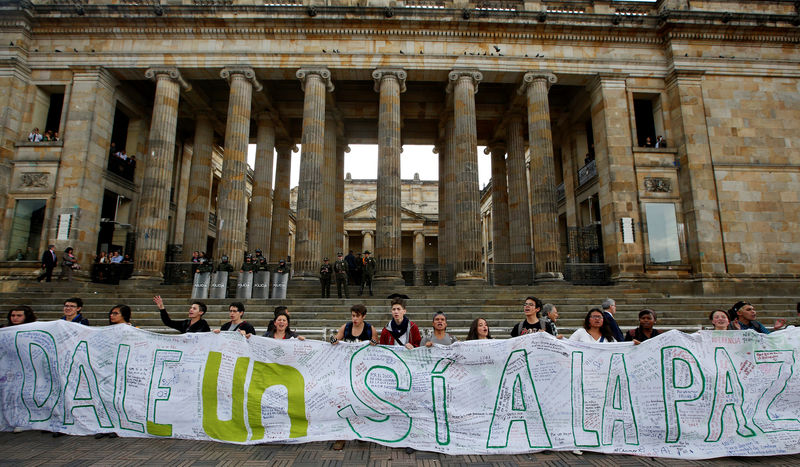By Patricia Zengerle
WASHINGTON (Reuters) - Both the Colombian government and Marxist rebels are committed to dialogue to reach agreement to end the country's 52-year-long civil war despite voters' rejection of a peace deal, a senior U.S. State Department official said on Wednesday.
"They have made it clear they want the peace process to continue and they want to negotiate a settlement," the official told reporters on a conference call. He said he had met with both sides in Havana, Cuba, on Wednesday.
The surprise plebiscite result on Sunday is a political disaster for Colombian President Juan Manuel Santos. It plunged the country, one of the most important U.S. allies in Latin America, into uncertainty over the future of the Revolutionary Armed Forces of Colombia (FARC) rebels, who had been expected to disarm once the deal was passed.
The rejected peace deal was reached after four years of painstaking negotiations in Havana, where negotiators were back at the table on Wednesday.
The State Department official said Santos had asked Washington to be helpful where it can. He said Washington has continued a dialogue through its embassy in Bogota and through direct contact with Colombia.
Secretary Of State John Kerry spoke with Santos to reaffirm U.S. support on Tuesday.
The official made clear the task will not be easy.
"While Colombians desperately want to see an end to violence ... they are deeply divided about the terms" of any final agreement, he said.
The official also said it was too soon to discuss U.S. plans to send Colombia hundreds of millions of dollars in aid intended to support the country as the peace deal went into effect.
"It's not worth speculating about. Our hope is that the peace accord will go forward," the official said.

U.S. congressional aides said on Tuesday that the referendum result might cause lawmakers, who must appropriate the money, to pare back the amount designated for Colombia.